NHS staff have delivered record-breaking levels of elective and cancer care over the summer months, according to new data published today.
Between June and August, the NHS managed 4.60 million elective cases – up by 138,000 compared with the same period last year (4.46 million). During this time, an additional 210,946 cases joined the waiting list, bringing the total list to 7.41 million, representing around 6.26 million individual patients.
The NHS also carried out almost 7.5 million diagnostic tests and checks – more than 250,000 higher than last summer (7.48 million vs 7.21 million). A record 654,640 patients were told whether they had cancer within 28 days of referral, up 28,560 on summer 2024.
Meanwhile, 59,663 patients began cancer treatment within 62 days of diagnosis – an increase of 2,420 on last year – marking another record for the health service.
These achievements came despite a challenging summer that included five days of strike action by resident doctors from 25 to 30 July, leading to 54,095 postponed appointments and procedures, and at a time when many staff took well-earned leave.
Thanks to the dedication and efficiency of NHS teams, the number of treatments delivered per working day in August rose by 4.4% compared to last year. The NHS is now just one day’s worth of activity away from meeting its elective care targets.
To help manage demand, the NHS continues to expand initiatives that prevent unnecessary hospital referrals. Between April and August, over 589,000 patients avoided referral through the Advice and Guidance system, which allows GPs to consult hospital specialists directly on patient cases.
Record demand in urgent and emergency care
The summer surge has carried into autumn, with September 2025 the busiest month on record for both A&E and ambulance services.
There were 2.31 million A&E attendances, up 4% from 2.21 million in September 2024, while the proportion of patients seen within four hours improved slightly (75% vs 74.2%). Ambulance crews also handled a record 761,433 incidents, up 6% year-on-year.
To relieve pressure on emergency services ahead of winter, from 1 October all GP practices are now required to keep online consultation tools open throughout working hours, freeing up phone lines and making it easier for patients to access care.
NHS and government leaders praise staff performance
Professor Meghana Pandit, NHS National Medical Director, said:
“NHS staff made history this summer, delivering record-breaking levels of care. But we’re not slowing down. With A&E and ambulance demand already higher than last year, teams are preparing for what looks to be a tough winter. The public can help by getting flu, COVID-19, and RSV vaccines if eligible, using NHS 111 for non-urgent needs, and only calling 999 or visiting A&E in life-threatening emergencies.”
Health Minister Stephen Kinnock said:
“This has been a record-breaking summer for the NHS, with more cancer cases diagnosed or ruled out and more tests and treatments delivered than ever before. Backed by £29 billion in extra funding this year, and through our Plan for Change, we’re investing in surgical hubs, weekend scans, and modern technology to ensure millions more patients are treated on time.”
Vaccination reminder
The NHS is urging eligible people to come forward for their flu and COVID-19 vaccinations ahead of winter.
- COVID-19 vaccines are available for people aged 75 and over, those who are immunocompromised, or living in older adult care homes.
- Flu vaccines are offered to over-65s, at-risk under-65s, pregnant women, children, carers, and frontline staff.
Appointments can be booked via the NHS App, at GP practices, online at nhs.uk/bookflu or nhs.uk/bookcovid, by calling 119, or through local walk-in services.
Source: NHS England


